Drawing on a perspective of mathematics as situated social practice, we focus on 4 children in an urban preschool classroom and follow those children between home and school sites to shed light on urban children’s persistent underachievement in mathematics. In this article, we describe the ways in which numeracy practices travel with children between home and school and, within those contexts, shape complex and sometimes limited social identities for children. We found that school imperatives, such as assessments and socialization curricula, often obscure teachers’ views of children’s mathematical practices. Deficit assumptions about family and community support for children, and limited interaction between caregivers and teachers, further contribute to the tendency of school personnel to overlook the mathematical practices that children bring with them to school. We further suggest that vignettes drawn from ethnographic-type research such as this have potential for professional development for classroom teachers.
Home to School: Numeracy Practices and Mathematical Identities
Diane Downer Anderson , Eva Gold
Date: January 2006
Related Publications

Publication
Addressing Structural Barriers to High School Graduation: Examining the Impacts of the Éxito program at Kensington Creative and Performing Arts
Molly Pileggi, Dae Y. Kim

Publication
Costs And Quality in Virtual/Hybrid Summer Youth Employment Programming
Jill Pierce, Lindsey Liu

Publication
Boosting Children’s Language and Literacy Skills Through Blueprint: An Evaluation of Children’s Literacy Initiative’s Blueprint for Early Literacy 2017 – 2019
Alyn Turner, Rachel Comly, Rebecca Reumann-Moore, Matthew Rigsby, Kendra Strouf, Ryan Kapa
Publication
Making It Work: Bibliography and Technical Appendix
Kelly Sloane, Jason Fontana, Anna Shaw-Amoah, David Lapp, Alyn Turner

Publication
Making It Work: Examining the Status of Non-Traditional Child Care in Pennsylvania
Kelly Sloane, Jason Fontana, Anna Shaw-Amoah, David Lapp, Alyn Turner
Publication
Trauma-Informed Schools in Pennsylvania: Aligning Expansion with High-Quality Implementation
Mark Duffy, Rachel Comly
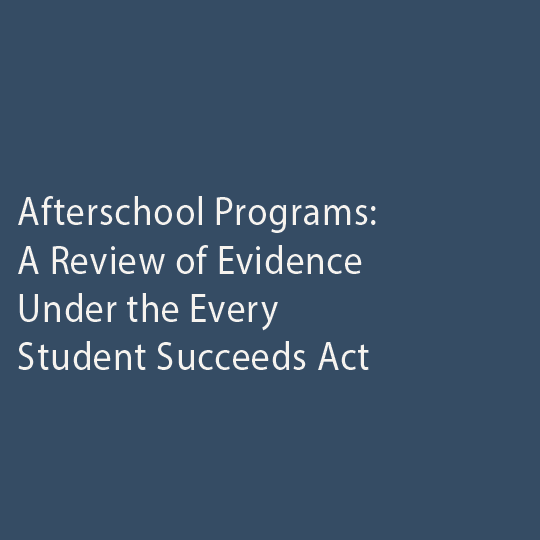
Publication
Afterschool Programs: A Review of Evidence Under the Every Student Succeeds Act
Ruth Curran Neild, Wendy McClanahan, Sandra Jo Wilson
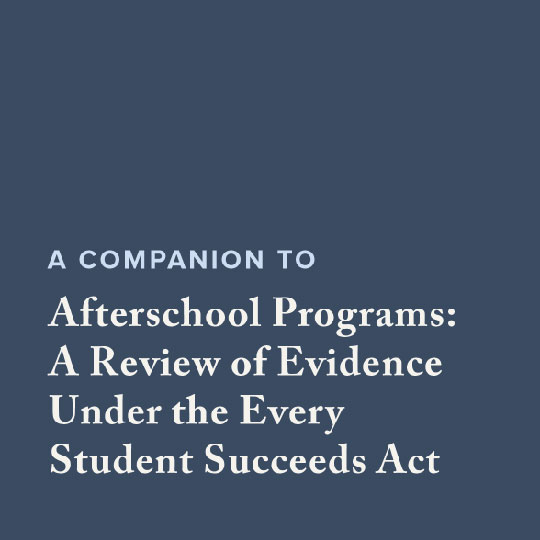
Publication
Afterschool Evidence Guide: A Companion to A Review of Evidence Under the Every Student Succeeds Act
Ruth Curran Neild, Sandra Jo Wilson, Wendy McClanahan
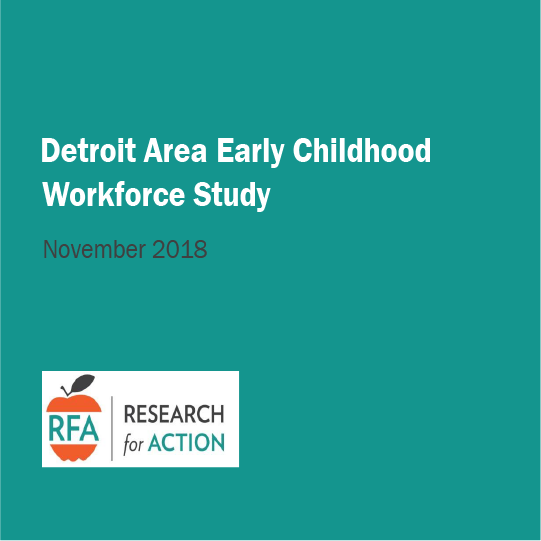
Publication
Detroit-Area Early Childhood Workforce Study
Alyn Turner, Kelly Etter (Policy Equity Group)
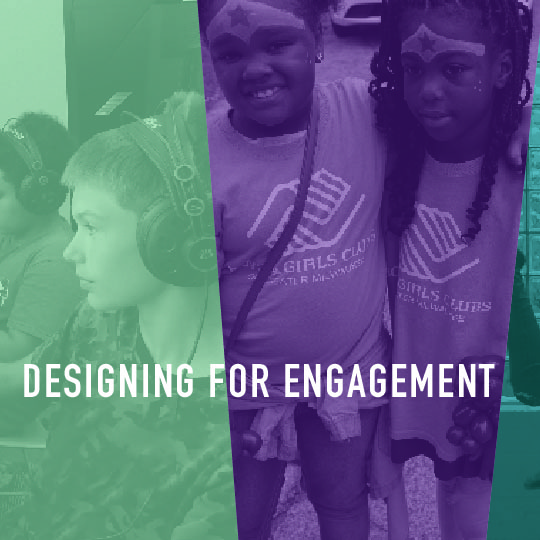
Publication
Designing for Engagement: The Experiences of Tweens in the Boys & Girls Clubs’ Youth Arts Initiative
Tracey A. Hartmann, Lindsey Liu, Wendy McClanahan, Tosin Shenbanjo
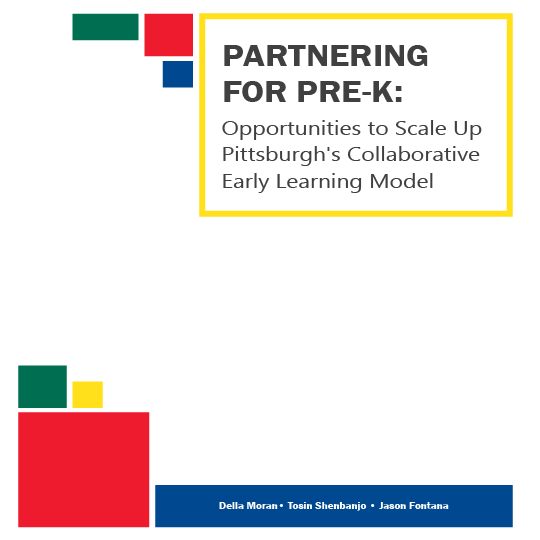
Publication
Partnering for Pre-K: Opportunities to Scale-Up Pittsburgh’s Collaborative Early Learning Model
Della Moran, Tosin Shenbanjo, Jason Fontana

Publication
Executive Summary: Raising the Barre & Stretching the Canvas
Wendy McClanahan, Tracey A. Hartmann